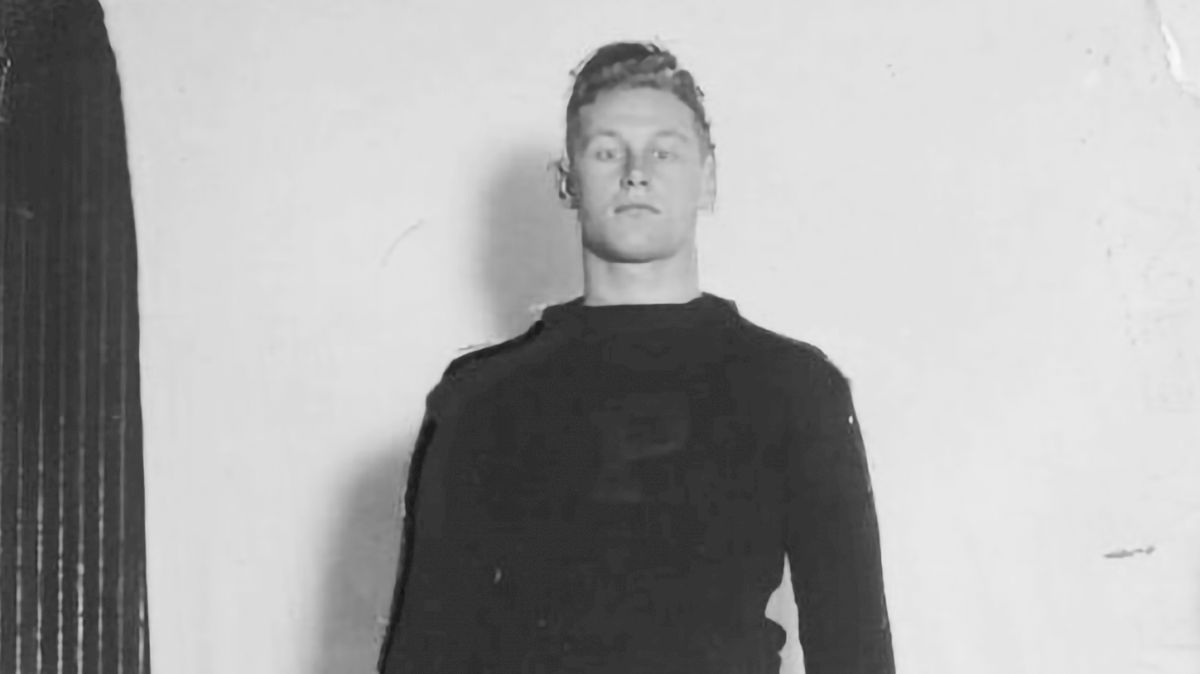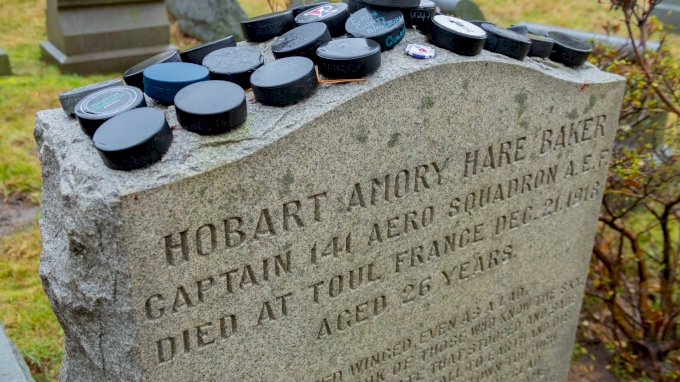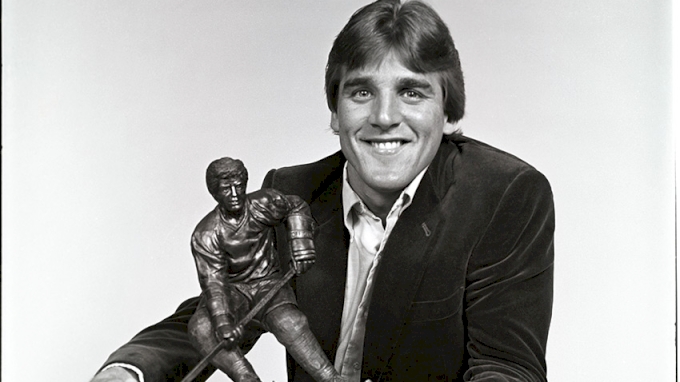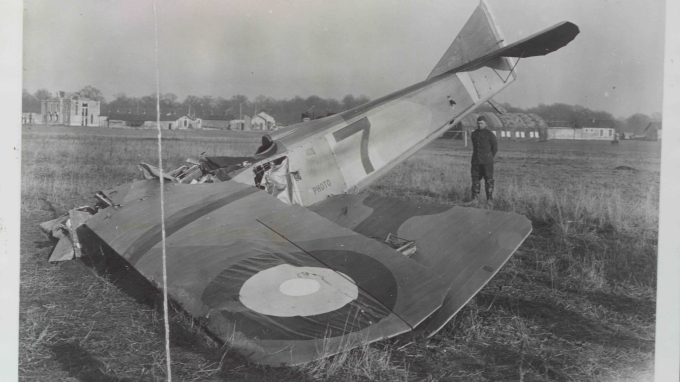The Legend Of Hobey Baker Lives On 100 Years Later
The Legend Of Hobey Baker Lives On 100 Years Later
Hobey Baker will forever live on in the memory of American hockey fans as both a hero and a talisman of a player.

Last Saturday morning, Princeton and Penn State’s hockey teams took a field trip to West Laurel Hill Cemetery in suburban Philadelphia. They proceeded to plot No. 18 of the sprawling greensward, gingerly placing pucks on the top of a gravestone that is part of American hockey history. It is the tombstone of Hobey Baker, the greatest amateur player in the history of hockey in the United States.
Today marks the centenary of Hobey’s death on Dec. 21, 1918, three weeks before his 27th birthday. His death was as mythic as his playing career, crashing a flawed World War I pursuit plane five weeks after the Armistice.
That surreal day in France is now a bookend to Baker’s legendary resume: The last man to die in World War I, and the first inducted into the Hockey Hall of Fame. As all readers of this space know, Hobey’s name has been on college hockey’s player of the year award for nearly four decades. It is an award as much for sportsmanship as it is for excellence on the ice. We caught up with three former winners and asked them what it meant to win the Hobey Baker Award.

Fans, players, and coaches alike visit Baker's tombstone.
“I was humbled and honored,” George McPhee said. McPhee became the award’s second recipient back in 1982 following a four-year career at Bowling Green. “When you learn more about Hobey Baker, you realize that he was an elite athlete and an American hero. When you are mentioned in the same breath as that man, because of that award, things change, and you have a higher standard to live up to. You have to be as much like him as you can be, be a better human being in every way, and try and set examples for younger people. To win that award, you’re really proud to bring that back to your school.”
Seven years later, Harvard star Lane MacDonald, fresh off a national championship season, brought the “Hobey” home to Cambridge, Massachusetts. MacDonald felt a connection to Hobey on several levels.

George McPhee with the Hobey Baker trophy.
MacDonald first learned of the American legend when he played at Hobey Baker Memorial Rink in Princeton, New Jersey. “Playing at Harvard and going to Baker Arena, you had a greater understanding of Hobey Baker, [greater] appreciation for the award.”
Baker’s oath to amateurism, and disdain for professionalism, was the creed of MacDonald’s Harvard coach Bill Cleary, another American college hockey superstar. “Playing for Bill Cleary, who had the same ideals as Hobey Baker about amateur athletics, I ended up having the same values that Cleary had, and Hobey before him: that it is the purest form of sport is not for money, it is for the competition, the camaraderie and the teamwork, and the accomplishments you can achieve together.
“Hobey Baker lived his life in a way to which we all aspire,” said MacDonald. “He lived an extraordinary life, albeit only 26 years, one in which he accomplished so much, both athletically and trying to help our country win the war. He then made the ultimate sacrifice in terms of dying for his country.”
The most recent recipient of the Hobey Baker Award is Adam Gaudette, who led Northeastern University to a championship at Boston’s Beanpot Tournament in his final year as a Husky. Gaudette was a fast learner about Baker’s intangibles.
“He was such a character guy, a great leader on the ice and off,” said the Vancouver native. “You try and do all the right things that Hobey did. Sportsmanship is a big part of hockey, giving back goes a long way. Part of the Hobey Award is giving back to the community.”
Back in 2014, the Hobey Baker Award Committee made the case that Hobey was the man responsible for hockey’s traditional post-game handshake.
“I learned about it this summer,” Gaudette said. “It’s so valued in our game, respecting each other after a series. Play hard and leave it all on the ice.”
That was the Hobey code, to leave it all on the ice, especially after his sensational efforts against Canada’s best amateur teams. Despite the beatings he took on the ice, Hobey made a point of going into the visiting dressing rooms and shaking his opponents’ hands.
Like so many gifted athletes, Hobey thrived on risk. MacDonald, the 1989 Hobey Award winner, captures the essence of the hockey deity, who died like Icarus, falling 350 feet from the sky in front of his loving mates.
“He was more comfortable with risk than other people,” MacDonald said. “Unfortunately, while trying to do the right thing, he took a risk that ended his life. In some ways, you live your life to the fullest, there’s always that fine line, do you live it on the edge? Which side of the edge are you on? Such a tragic ending. It makes it an extraordinary story.”
Hobart Amory Hare Baker
1892-1918
R.I.P.

Author Tim Rappleye just released his latest book: Hobey Baker, Upon Further Review (Mission Point Press, 2018). He can be reached @TeeRaps.